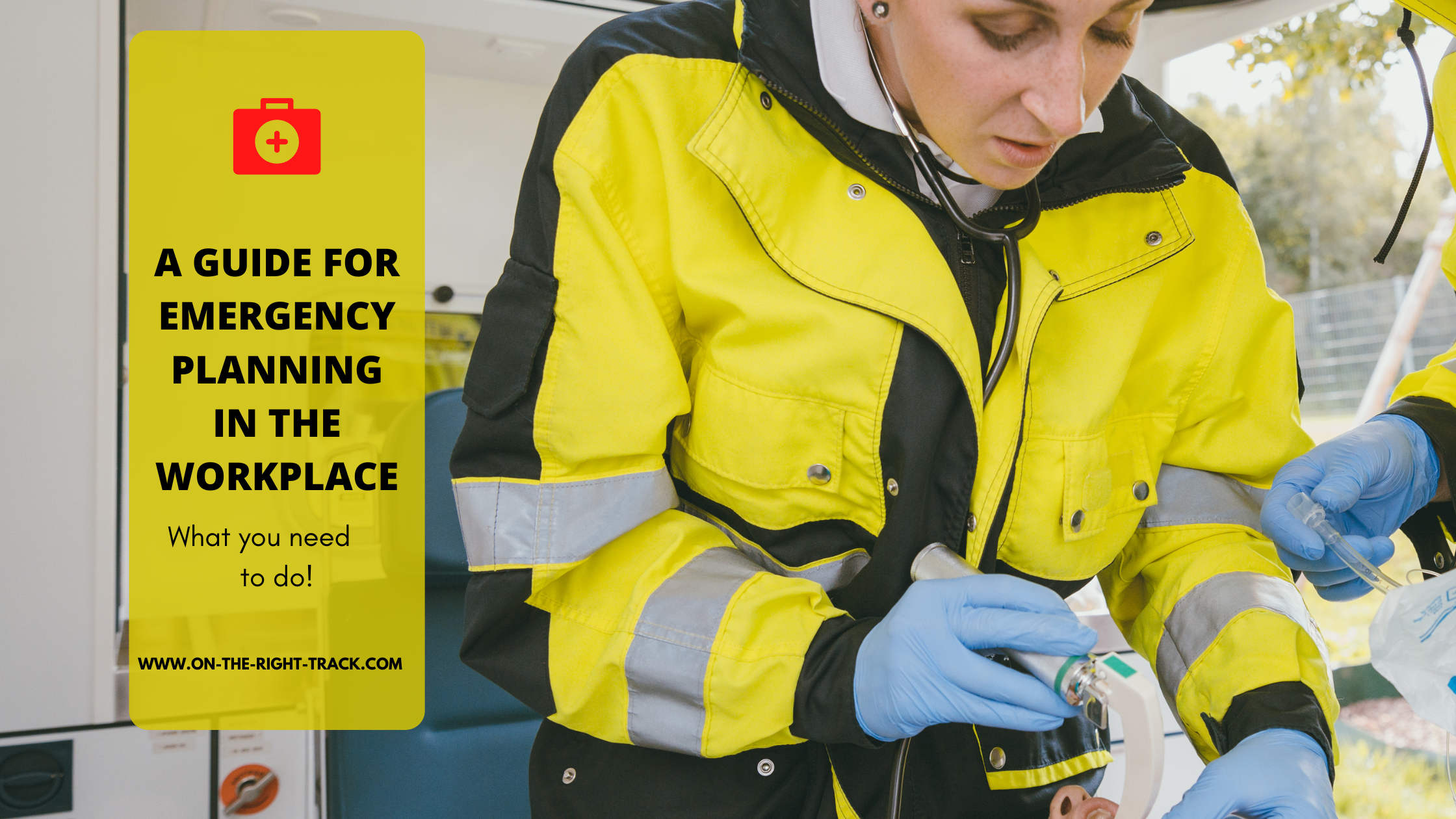It’s been a rough couple of weeks in the southeast United States with hurricanes, flooding, and tornadoes. I can’t imagine the stress it’s causing not only individuals but businesses as well. And we know that when times get tough, they all look to us for what we should do. As administrative professionals, we do much more than the typical admin tasks. Our job is often to manage day-to-day operations, even during emergencies.
Most of us figure it out in the middle of the crises, but wouldn’t it be much easier to have a documented plan of action? If policies need to be written on when we can work from home or close the office, doesn’t it make sense to have them in advance?
Emergencies typically strike without warning, and having a well-thought-out plan can mean the difference between chaos and a well-coordinated response. Creating a comprehensive emergency preparedness plan for the office will help you cover all potential risks and ensure we all can be calm and efficient.
What to do:
– Conduct a risk assessment: Assess the workplace’s vulnerability to flooding, fire, power outages, or medical emergencies. If an ambulance had to enter the office, could they easily get there? Are the areas in the office identifiable for someone who doesn’t work there? How would they find “Mike’s office” if Mike had a medical emergency?
– Backup data: Regularly backing up all (not just yours but everyone’s) data to cloud storage or offsite servers is crucial. In the event of a flood or fire, this can prevent the loss of important information. Anytime you save any documentation to an individual laptop and not a server, you risk losing it.
– Create an evacuation plan: Ensure that there are clear evacuation routes. Post maps in visible locations and conduct regular drills so employees know how to exit safely in an emergency. Do you have a muster station for everyone to gather at to ensure we know that everyone is accounted for?
– Prepare an emergency kit: Keep essential items such as a battery-powered radio, first aid supplies, flashlights, and waterproof containers for important documents. Make sure these are stored in an accessible location and not locked. During an emergency, we don’t know who has access and what the codes are, and panic will cause unnecessary stress.
– Establish a communication plan: How will we communicate with everyone in the case of an emergency? Do we have an easy-to-access list of cell phone numbers, emails, and other contact information?
Recently, in our small community, there have been some issues with threats being called into our local high school. The threats caused the school to be closed unexpectedly after school hours. But, for some reason, they didn’t have a communication plan and relied on social media to inform everyone not to come to school the next day. As you can imagine, many people don’t check the Facebook page of their children’s school regularly, and there was quite a backlash regarding how the closing was handled.
– Establish guidelines for office closures: Instead of having employees potentially drive in unsafe conditions to get to work, establish what qualifies as a “work from home” day. For example, if there are more than six inches of snow or rain in the next 24 hours, we tell people not to come to work that day.
When I worked at the real estate company, there was zero consistency when we were told to go home on snowy days. Some days, the manager would tell all the staff to go home at lunch if a big storm was coming. Other times, he told us traffic would be better if we stayed until the end of the day, so he didn’t approve for us to leave early. We were never sure if lousy weather meant we had a very long working day or a shorter one.
– Ensure business continuity: Plan how the business will continue if employees cannot physically enter the office. This could mean enabling remote work or rescheduling non-essential meetings. Will someone be required to be in the office for deliveries or security? Decide who that will be and how they will have access to the office.
For those offices that shuttered quickly during the pandemic, remember how confusing it all was. Yes, we figured it out, but it makes sense to me to have procedures in case it happens again. We need to learn from our past, not constantly figure things out in the moment.
– Set up an emergency response team: Designate employees responsible for different aspects of the emergency plan, such as communication, evacuation, and first aid. In the same way we typically have a person in charge if there is a fire in the building (and they get to wear the fireman’s hat!), we have people in charge of different types of emergencies. Assign specific tasks in advance, such as first aid, evacuation control, or communication liaison. Don’t wait for an emergency to decide who is doing what; get it prepared in advance.
– Routinely update and conduct practice drills: Once we have this all in place, it is important that we test it to ensure everything works as expected. Prepare hands-on training and information sessions to ensure everyone knows the evacuation routes, emergency exits, designated muster points, first-aid responders, and processes. We also need to routinely update the guidelines as things and people change. Prioritizing regular reviews guarantees that your emergency preparedness plan remains current and relevant in addressing potential threats.
Each year as we renew our house insurance, I jokingly say that I hope we are wasting our money. I always hope that we never need the insurance we pay for, and I also hope you never need these emergency plans. But to have them ensures we have a workplace which is safe regardless of what comes our way.
This article was written by Rhonda Scharf and not by artificial intelligence.










